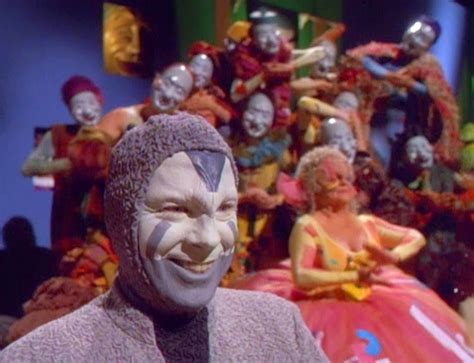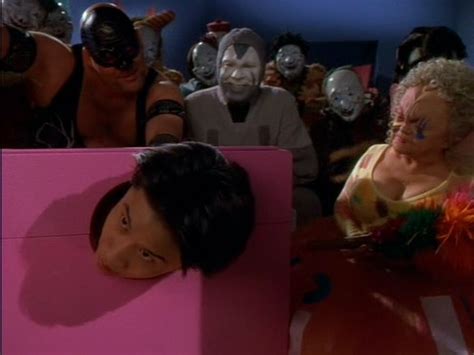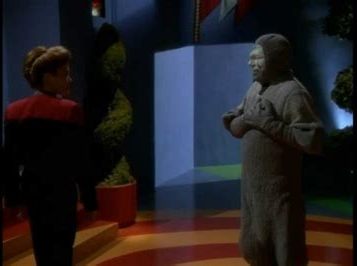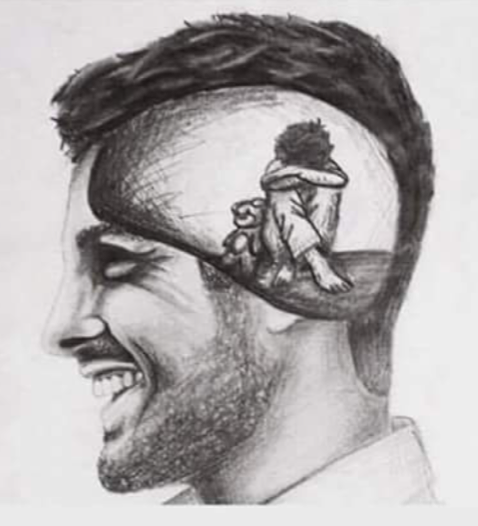|
Word Gems
exploring self-realization, sacred personhood, and full humanity
A Course In Miracles
return to "The Course" main-page:
Editor's note: See the important article on the "Ego" and the "false self."
The ego is that part of the mind that believes your existence is defined by separation.
The ego is the mind’s belief that it is completely on its own.
… the ego is [not] a separate thing, but … you want to believe that you are [separate]. The ego is a device for maintaining this belief...
I have spoken of the ego as if it were a separate thing, acting on its own. This was necessary to persuade you that you cannot dismiss it lightly, and must realize how much of your thinking is ego-directed.
The ego is nothing more than a part of your belief about yourself. Your other life [that is, the hidden “true self” of the soul] has continued without interruption, and has been and always will be totally unaffected by your [ego-led] attempts to dissociate it.
|
By becoming involved with tangential issues, [the ego] hopes to hide [from your awareness] the real question [concerning its motivations]... The ego’s characteristic busyness with nonessentials is for precisely that purpose [which is, to distract you, the ego-led self, from finding your true self]. Preoccupations with problems set up to be incapable of solution are favorite ego devices for impeding learning progress [toward sanity] … these [are] diversionary tactics
the ego … judges only in terms of threat or non-threat to itself… is primarily concerned with its own preservation in the face of threat… The ego exerts maximal vigilance about what it permits into awareness, and this is not the way a balanced mind holds together … it raises control rather than sanity to predominance…
READ MORE
|
The ego is afraid of the spirit's joy, because once you have experienced it you will withdraw all protection from the ego
When you feel guilty, remember that the ego has indeed violated the laws of God, but you have not… While you feel guilty, the ego is in command, because only the ego can experience guilt. This need not be.
Editor's note: See the article on "Guilt" for discussion on how the churches use it as a weapon to control people.
Everyone makes an ego or a self... the ego is only an idea not a fact.
Now you must choose between yourself and an illusion of yourself.
Belief is an ego function... When teaching is no longer necessary, you will merely know God [that is, as opposed to those with belief in God].
You who identify with your ego cannot believe that God loves you [because the very essence of the ego is 'separation' and 'otherness'].
[The ego's] communication is controlled by its need to protect itself, and it will disrupt communication when it experiences threat. Editor's note: How often we experience, when speaking to someone, a conversation that begins well, but then something is said that offends the other person, and we immediately feel their spirit withdrawing from us. It's the ego feeling attacked and threatened, and now pulling back for safety.
The ego tries to exploit all situations into forms of praise for itself... [The ego lives] by comparisons. Editor's note: The mind led purely by ego is always trying to find a way to make itself more, and others less, by various comparisons. All situations are exploited to offer the ego this boost or enhancement.
The branch that bears no fruit [the dysfunctional ego within] will be cut off and will wither away. Be glad! The light will shine from the true Foundation of life [which is the light of consciousness of the true Self] and your own [egoic] thought system will stand corrected.
Editor's note: A branch connected to a main vine, connected to Source, is a primary symbol in the New Testament. We are the branch, deriving our life from God. However, at present, the ego is also a kind of branch feeding from us, a form of parasite to our being. It will "wither away," as the Course says, as soon as we shine a mental light of awareness on it.
How can [the ego] maintain the trick of its own existence except with [sleight-of-hand]? But where you look to find yourself is up to you.
|
Will we still have to battle the ego's selfishness when we transition to Summerland? Can it be removed? Do even the ancient Spirit Guides still have to deal with this egocentrism?
Further, there are many teachers on the other side who say it’s easier to learn our ‘kindergarten’ lessons here, on the sorrowful planet Earth. What do they mean by this?
READ MORE
|
|
we are sailing stormy waters
Rod Stewart’s presentation of “We Are Sailing” at the Royal Albert Hall is a knock-out performance. It’s one of my favorite music videos:
Everyone at this concert, it's pretty obvious, was on fire, and the whole auditorium was doing “the wave.” However…
Some people believe that if we could all just hold hands and sing and chant and feel good and lift our spirits like this a whole lot more, we could change society and ourselves, and create harmony and well-being for everyone. But the “Course In Miracles” would not agree with this formula for world peace.
The song asks an implied question: How can we be free in an unfree world? moreover, how can we navigate the roiling and churning waters of this world’s chaos and make it back to our true home and find the beloved?
READ MORE
|
|
possibly, the most original, creative episode of Star Trek - if the Ego were a person, what would it be like interacting with it face-to-face
My first reaction to Star Trek: Voyager, “The Thaw,” was “Wow, this is really something. It might be the most original Star Trek episode I’ve ever seen! And there’ve been some good ones.”
And so I was more than a little surprised to discover that the sentiments of Director Marvin Rush were well in line: "I felt I was doing something incredibly important, and I couldn't wait to start! … Personally, this was the most compelling Trek script I had ever read... I don't think there has ever been a Star Trek episode like it." Now that’s saying something.
See extensive discussion about “The Thaw” at https://memory-alpha.fandom.com/wiki/The_Thaw_(episode)
very brief synopsis
Voyager discovers several stasis-units in hibernation. The sleeping aliens were connected to each other and to a central computer. The computer generated an artificial, dream-like environment intended to keep the aliens’ minds active.

The aliens intended to remain in stasis for a temporary period, but the activation program allowing them to re-enter the real world had been tampered with - from within the program.
Captain Janeway sends two crew members to enter the artificial environment in order to free the sleepers. What they find is a macabre circus-like atmosphere directed by a mentally-unbalanced figure known as “The Clown.”

This sinister entity controls everyone in the hibernation-environment by Machiavellian fear tactics. Those who oppose The Clown are led to the guillotine.

The question was raised concerning how a guillotine could be effective in a dream world, but then it became clear that the execution device did its work by injecting paralyzing fear into its victims, thereby inducing massive heart failure. More than one of the aliens had been killed this way.
Voyager wondered if The Clown might be a kind of computer virus, but the answer wasn’t quite that simple. The original programmers had wanted the software to be adaptive to the stasis-members' intellectual needs during hibernation.

They had not foreseen, however, that a collective ego of the sleepers would take to itself both a life of its own and leadership over the cyber-environment.
personifying The Ego
“The Thaw” offers incredibly rich material concerning analysis of the dark side of human nature. Much could be said here, and you’ll have to see the episode for yourself.
However, for students of “A Course In Miracles,” an easy segue will be made between The Clown and The Ego. Personifying the dark side of human nature was a literary master-stroke.
The Ego and The Clown have much in common; each rules his domain by the fear of death. Similarly, The Clown is insane and cannot be negotiated with, as such, and operates on the lowest level of consciousness.
At the end, The Clown is brought to bear by a clear vision of his own vulnerability. He has no real life of his own, no real power, and exists only as insubstantial derivative of people’s dark-side terrors.
while, in the main, I would offer high praise for “The Thaw” and its artistic efforts, there are some aspects of the portrayal which do not conform to how the Ego really works
In the final scene, The Clown is tricked by Captain Janeway to release its hostages. As the lights begin to fade from the computer program, Janeway and The Clown muse philosophically as to why The Clown, seemingly, had allowed itself to be tricked. The script writers, not students of “The Course,” it would appear, offered the poetic explanation that The Clown’s realm of fear, effectively, was looking for way to end itself.

It’s a nice sentiment; unfortunately, it doesn’t work that way. The Ego never gives up; whether on an individual basis or in terms of its primary victims, the totalitarians of history.
The Ego will keep coming at you, and keep coming at you, and keep coming at you, without end – until the light of consciousness shines upon it, thereby revealing its essential powerlessness. It's called enlightenment. Only then will it be over.
|
|
everything the ego does devolves to one central pathology
All this talk of the Ego and its ensuing widespread calamity may seem overdone. Therefore, allow me another attempt to explain the pervasive nature of its sordidness confronting every human being.
What do the following 10 examples have in common?
(1) the elderly lady, visibly frightened of new information which might threaten her view of a particular god or goddess rescuing her upon transition to the next world;
(2) screaming fans, shouting with hysteria, hoping to touch, or even glimpse, an adored celebrity;
(3) billionaire corporate heads employing new technology to increase surveillance on a populace, thereby diminishing rights to privacy;
(4) national leaders, with big sloppy grins, posing as benefactors to the country’s interests, while undermining civil liberties, the rule of law, and taking to themselves more power;
(5) supervisors or fellow co-workers seeking to deny promotion or commendation, though you’ve earned it and are the best choice for the new position;
(6) social-media platforms which censor free speech because of "misinformation," meaning, it doesn't conform to a totalitarian agenda;
(7) materialistic scientists who repress, ignore, or otherwise vilify the "scientific evidence for the afterlife";
(8) a friend, lover, or family member who insults you, slants a story, attacks you, cheats you, because they disagree with, and are threatened by, your new-found beliefs.
(9) the neo-Postmodernist, the delusional “woke” adherent, occupying the lowest level of consciousness, arrogantly and vacuously proclaiming that rationality itself is part of “white man’s” oppression; that, even to be on time for work is a “white thing”;
(10) the soldier, part of an invasion force against a peaceful people, firing on, murdering, civilians because it’s his “duty” to “follow orders” of his imperialistic superiors.
We could go on listing many more: the gossip in your neighborhood who stands by her window, judging and condemning, trafficking in the mundane details of others; the college instructor who ridicules, and punishes with lower grades, those who disagree with his totalitarian leanings; the so-called news-reporter, piously claiming to have entered her profession to “make a difference,” incessantly offering selective and screened factoids to support a hoped-for Orwellian dystopia; the suicide-bomber, or the mad driver barreling into a crowd of civilians, or the shootist, seeking for publicity, or revenge; the high-school friend, once a confidante, but suddenly counting you an enemy when she veers off into new philosophical moorings; the martinet husband, psychologically, or otherwise, abusing a wife whom he does not love yet will not allow to leave his fiefdom.
What is the common thread?
In each case, a needy ego has identified with some power-structure, some external augmentation, some strong “father figure” to the inner child; an adoption of surrogate life, a face-saving production, a seeking to enhance oneself, to make oneself “more” and “above,” to feel important and a “somebody”, a propping up and bolstering, an assuagement of underlying fears of “not making the grade,” of “I am not enough,” leading to a surrendering of autonomy and critical faculties, a victimhood pathology of linking oneself to some external image of authority or purported salvation.
According to the great psychologists, in its deepest writhings, all of these examples represent the fear of death on display. In each case, a perceived locus of one's life and essence, one’s “center of being,” lies outside oneself, stands subservient to some icon of imagined greater energy, wisdom, or value. In other words, in all this dysfunction there is no sense of having been "made in the image," of “being enough,” no personal view of the limitless "inner riches," one's divine heritage as "spark struck-off from God." As such, this deficit leads to servility, to existential crisis, to forms of insanity. And therefore nearly 100% of the denizens of planet Earth are engaged in some form of the above cultism.
|
more than drinking the koolaid
The long reach of cultism encompasses much more than crackpot churches. The root idea of cult offers the sense of "cut." This core concept of "cut" leads us to images of refinement and refashioning and, by extension, development, control, pattern, order, and system.
Cultism as systemization finds a ready home in religion and philosophy which seek to regulate and redistill the patterning and ordering of ideas. However, in a larger sense, the spirit of cultism extends to every facet of society. We find it scheming and sedulously at work in politics, academia, family, corporations, entertainment, science, artistry – anywhere power might be gained by capturing credulous and fear-based minds.
See the “cultism” page for a full discussion.

|
I submit to you, every insult, abuse, affront, contempt, disrespect, misrepresentation, aggression, assailment, invasion, violation, trespass, usurpation, infringement, conflict, and war – in the history of the world, and your own personal history -- have resulted from egos, at the expense of others, attempting to feel better about themselves, pursuing to quash the sense of inner neediness, of “I don’t have enough” because “I am not enough.”
every ego wants something from you
What does it want?
It wants to use you to feel better about itself, to fill up the emptiness inside. It will attempt to accomplish this make-over by (1) comparing itself to you, finding some metric by which it can judge itself as superior; (2) deriving pleasure from you, an effort to cloak the pain within; (3) ruling over you, power-and-control measures, to enhance and propagandize itself; (4) minimizing, discounting what you represent in order to aggrandize its distorted belief system about how life works; alternatively, if demonizing doesn’t succeed, it will (5) surrender to you, call you a genius or a god, by which subservience it hopes to find security and safety under the protective mantle of a “strong father figure.”
further distillation
Can we, even more, reduce all of the above to common element?
The ego, at a deeper level, is driven to create a perception of itself as “other.” This generalized sense of “otherness” is then leveraged into a “me against them” lens of looking at the world. And it’s not just a contrariness toward other people. If others aren’t around, or even if they are, the ego can make us feel estranged from life itself and, of course, God, as well, as we blame, and set ourselves against, these for perceived unfairness.
Why is this important to the ego? According to ancient Spirit Guides, we come to this world for one primary reason: to individuate, to become persons in our own right; all other aspects of development, for the moment, are secondary.
The ego will reconfigure memories and current sensations to emphasize “otherness.” Much of this reformulation can be very unpleasant to contemplate, but it does accomplish one thing: even though at the quantum level we are connected to all, at the surface of personality “otherness” creates a stand-alone psychological entity that becomes the perception of “I”, which is the very definition of ego.
Editor’s note: Concerning the above “10 examples,” each of these represents a certain unsavory aspect of the dark side of human nature. But this skews the picture. The dysfunctional ego also operates in the arena of heroic service and commendable, stalwart mettle.
I am thinking of the celebrity artist, athlete, singer, politician or other notable who publicly dedicates his or her life to good works as a result of purportedly drawing strength from a patron saint, religious icon, or savior-god. The ensuing good works might be larger-than-life, consummated even in the face of great privation and adversity. All of which is meant to proclaim to the world, “I do all this by the power of my relationship to said patron saint, religious icon, or savior-god.”
But, is this reality? How are we to view such valorous and epic conduct? Does it happen by way of aligning one’s person with an external divinity?
We would do well to recall that any number of non-religious “secular saints” might be brought to our attention who have nobly, in a lion-hearted way, offered charitable service, even to the point of death. One example immediately comes to mind: Dr. Viktor Frankl, in the concentration camps. He accepted the task of encouraging other inmates, despite near-starvation and often-beatings by the guards. He served the contagious typhoid dying, and, more than once, refused opportunity to escape the camp in order to remain with the suffering.
The dysfunctional ego is led by its foundational premise, “I don’t have enough” because “I am not enough.” As such, it looks for salvation from an outside source. This is pathological and takes us in the wrong direction, far from sacred destiny of living from one’s sacred center, the true self, one’s inner connection to God.
We are not to conduct ourselves as little children, living under the mantle of a “strong father figure,” a patron saint, religious icon, or savior-god.

We are to open our eyes to the inner riches, the innate “made in the image” reservoir of strength, available to all of us as sons and daughters of God.
|
|
Why do family members, old friends, and romantic mates drift apart or even abruptly split?
When my daughter was in high school, she had a girlfriend; the two seemed inseparable. Later, the friend chose an alternate lifestyle, assumed that she’d be judged, then abruptly, and permanently, broke off friendship ties.
An example of my own: In the “Evolution” article I recounted that in senior-high English class I’d delivered a speech on the subject of “Creationism versus Darwinism.” Almost all of it, as I now perceive, was error. However, a good friend since childhood disagreed, summarily rejected me, and put me away with no reconciliation.
the hidden cause of all conflict
Each of us, likely, could offer scores of such examples. Krishnamurti’s teachings on the ego – concerning dualism, fragmentation, separation, division – are not of mere academic interest only to professional philosophers. This information holds the sacred key to understanding why planet Earth is the stage for war and conflict, not just on the international level, nor solely with religious or political groups, but also among family members, friends, and lovers.
Why do people drift apart or become immediate enemies? The short answer is that they become an offense to each other. People identify with, make themselves equal to, belief systems which, they assume, will "make me happy." They say "this is who I am," and "this is what I need to be safe and happy," and if you represent something different, their self-image will be threatened, their prospects of safety and happiness will seem to fold - and then you'll be rejected, no matter the strength of former bonds of amity. You'll be rejected because, don't you see, it's a matter of life-and-death to the ego.
the carefully crafted self-image
In his 17.December.1969 lecture, Jiddu Krishnamurti offers one of the most clear and insightful explanations concerning the inner workings of this dark dynamic. When we feel offended by someone, he said, “there is an image about yourself,” one that we ourselves build. This ego-image reflects one's cultural “conditioning.” Why do we build this image? We do so “as a means of security ... of protection ... of being somebody.”
fear is behind the curtain
And what do we find if we draw back the curtain of this ego-image? “Now, if you go behind that," Krishnamurti says, "you will see there is fear.” What is the composition of this fear? It is the existential fear of "I don't have enough" because "I am not enough."
Let’s analyze this ego-image more closely. Why do we build it? What are we protecting? If we allow ourselves to become very still, if we taste and sample the nature of this hidden fear, we will find that we’re protecting a self-image, a mental projection of what the ego would like to be and have:
“I am the person who needs to be seen as virtuous, respected, worthy of honor. And it goes without saying that I know what’s best for you.”
“I am the person who needs to be seen as right and correct. As such, I need you to believe as I do, to agree with all of my religious superstitions, and my self-serving political views. I need you to accept all of my inflexible opinions because your assent makes me feel, not just safe and secure but, that I’m worth something.”
“I am the person who needs to be seen as successful, 'in the know,' and winning. I want you to be impressed with what I am and what I have so that I’ll be counted as a somebody. I need these merit badges so that I can face my peer group, family, and community and be considered important."
“I am the person who craves to be viewed as a wise person, an in-demand friend, a counselor with ‘the answers.’ I count on you to offer me this prestige so that I can feel good about myself.”
"I am the person who grew up on the 'wrong side of the tracks.' My family culture held great disdain for education and knowledge. This disrespect for anything truly progressive has always held me back, creating for me a self-image of 'I’m not smart enough to succeed. I can't get a high-paying job, that's for other people.' And so if you come to me and suggest that, in fact, I do possess talents and strengths, then I will feel very uncomfortable, begin to panic, as you attempt to lead me out of my dysfunctional comfort-zone. At the first sign, with your help, that I I could actually advance myself, I’ll fall apart, swoon in terror, and then begin to blame you, and hate you, before I retreat and crawl back under the safety of my rock."
"I am the person who is comfortable with present ideas. They've gotten me this far (sort of). And they may be half-baked, a straw-house of illogicality, but, even so, these irrationalities offer a certain veneer of meaning to my life. In support of this charade, I surround myself with so-called friends with whom I share a tacit agreement, an unspoken pact: 'You must agree never to point out the non sequiturs of my beggarly superstitions, and I will agree to act as if I accept yours.' That’s the conspiratorial deal. However, if you come along with hard empirical evidence, well-reasoned positions, and suggest that I might want to take a more honest approach to what I believe to be true, well then, I will have to hate you for upsetting the applecart of my entrenched and time-honored unreasonableness."
"I am the person who carries on the traditions of my family. Unfortunately, these are more like peculiar shibboleths, marks of tribal distinction, but not of honor and dignity. I feel duty bound to ask, “What would mother do?” or “This isn’t the way dad did it.” I don’t have enough self-respect to live my own life, follow my own insights, quest for my own meaning and destiny. And if you come along and encourage me to think for myself, to break the apron strings (years after mom passed on), I will feel frightened, disoriented. And then I will blame and hate you for pushing me toward autonomy, full personhood, and self-realization."
“I am the person who needs you to make me happy. You can be my friend/lover/relative if you do exactly what I say and think just as I think. Anything less than this will be threatening to 'who I am.' I need you to love me -- just as I am, with all of my soft-underbelly beliefs -- to compliment me, to defer to me, so that I can judge myself as ok. Don't let me down, I warn you.”
“I am the person associated with you, and if you disappoint me, if you fall short of my expectations - especially after all I've done for you - if you fail to make me happy, if you begin to take on contrary opinions, then you will become an opposing force to what I want and to the image I’ve created for myself. If any of this happens, then, of course, I’ll have to get rid of you, even though we’ve meant much to each other over long years. I'll have no choice but to shun you.”
And so if anyone – sibling, friend, lover, child, parent -- stands as opposition to any of these ego-images, then the offending person will immediately be counted as an enemy, no matter a long history of cordial relation.
a closer look at the hidden fear
We find there’s more than one curtain to open. The ego’s need to be seen as right, virtuous, properly religious or political, is not the only hidden agenda. As one pierces the levels of self-obfuscation we discover the core terror which vivifies all of the ego’s activities. It’s the fear of death. This is the central terror, as we learn from the great psychologists.
This means that when one is attacked, there may be purported surface issues, but the real reason people rage and become apoplectic is the ego fighting for its life. It's identified with, made itself equal to, being right, virtuous, and all the rest, and if it fails to promote itself with these "images," then it will face a kind of psychological death. “Who will I be?” it asks, if these false-security images are minimized or taken away?
the high cost of following the truth wherever it leads
All this is most dire. The reality is, if you assiduously pursue the truth, no matter the cost or where it might lead, then you will lose (for a time) almost every last person who was once close to you. Why must it be so? - because you will become a living, walking threat to another’s carefully crafted self-image.
narrow gate, without fellowship
Editor's note: In his writings, Andrew Jackson Davis warns of the "narrow gate" that leads to life; few be that enter it. Those who live courageously by following the truth wherever it leads, as Davis points out, “will walk a pathway without fellowship of thy earthly brethren.” The cults have long employed the weapon of excommunication, shunning, and ostracization - a forced separation from friends, workmates, and family - toward anyone who disagrees with the hive mentality. This putting away occurs not just in religion but in dysfunctional families, corporations, academia, politics, and other power-seeking groups. They’re afraid of contrary opinion which might disembowel and expose shallow teachings. And so they’ll get rid of you for spreading "misinformation"; and you, as a truth seeker, will be censored and required to make your way through this world “without fellowship of thy earthly brethren.” But, be assured, a day of reckoning is but one missed heartbeat away.
We, ourselves - not some mythical Satan - are the focal point of all evil in the universe. It’s the pathological ego within; it’s the false self, the ego-images, ever attempting to find safety and security for itself, to bolster an inner neediness, the existential emptiness deep within.
We cannot become truly educated, nor reach a good level of wisdom and maturity, in the highest and best sense - or meaningfully prepare ourselves for Summerland or to be with one’s Twin Soul - without understanding the wiles and machinations of our own personal “heart of darkness.”
please, it’s very impolite of you to notice that I lack a self
Soren Kierkegaard: “But in spite of the fact that man has become fantastic in this fashion [i.e., lives unrealistically by denying his own mortality and impending death, the terror of which is covered up by palliatives such as ritualistic, form-based but empty, religion], he may nevertheless … be perfectly well able to live on, to be a man, as it seems, to occupy himself with temporal things, get married, beget children, win honor and esteem – and perhaps no one notices that, in a deeper sense, he lacks [an authentic] self.”
|
|
Editor's last word:
The ego is not a "thing" as such. There is no literal part of the mind that might be labeled "ego." The term "false self" must not be taken literally but is an illusion of self.
Instead, the ego is merely a way of looking at things, a perverted mindset, a self-centered way, excluding the greater good. The ego doesn't care about others but, by definition, only about itself.
While self-preservation is a natural and good aspect of the mind, the ego takes it to counter-productive and self-destructive levels. For example, it will invade a country, or subvert an election, or propagandize a people, because it wants what it wants, but then, virtually surprised, it looks around to see all sorts of self-defeating unintended consequences. This is why it's judged to be insane.
The ego can be very clever at getting what it thinks it wants, but it has no true intelligence in any wider grasp of the term. We can feel it within ourselves by, what the Course calls, a sense of separation, of being alone, isolated, and cut off.
As we've discussed elsewhere, the ego is temporary developmental stage for us meant to aid in the individuation process. Even well into the future, we'll always sense its potential power for evil, but, in maturer days to come, we won't give in to it. We don't really want to expunge it without a trace as it will form the basis of our eternal wisdom, our compassion, our linkage to all humanity.
|
|





